Popes On Dope: Pontiffs Rate 6 Popular Drugs

Popes and drugs. Do they go together like crosses and messiahs? Or more like bongwater and a plush carpet?
There have been plenty of popes over the years, but since they’re supposed to be infallible, I suppose they’re also kind of interchangeable. I’m not sure I’d want to be infallible, it seems like a lot of responsibility—being interchangeable, however, sounds much less stressful.
Don't Miss
Anyways, next time you’re getting your jollies with some sublime psychoactive substance, you can use this simple guide to find out whether or not the papal hive-mind would approve.
Popes On Alcohol
Let’s start with the world’s most popular intoxicant, alcohol. The sweet solvent that drives civilization. The cause of, and solution to, all life’s problems. This one is easy. We all know that popes love their liquor. Wine is the official beverage of Christianity! Jesus’ first miracle was turning boring, stupid water into delicious, life-giving booze!

Catholics love their wine so much that they say it runs in the veins of their Savior. They believe in Transubstantiation, which sounds like something a 7th level Wizard would cast, but is actually a divine magic trick whereby ceremonial wine literally becomes the blood of Christ when consecrated. What’s that? You think the wine is only symbolically Jesus juice? Watch it buddy—that kind of talk would get you executed during various unpleasant times in history.
So according to all the popes there ever was, red wine becomes the actual blood of Jesus, which means the Messiah had an ungodly blood alcohol level! The real miracle is that Christ could stand up straight, never mind walk on water. Maybe he didn’t actually come back from the dead, he was just in an alcoholic stupor for three days.

James Tissot
After chugging holy Jesus blood for decades, you could start craving something stronger. That’s why Pope Francis called Scotch whiskey “the real holy water”—but if red wine is Jesus’ blood, then what does that make whiskey? Jesus’ adrenochrome?
Is Booze Pope-Approved? Yes!
Pontiff Pleasure Rating: 10 out of 10 Holy Grails Full of Wine
Popes On Caffeine
Liquor may be the world’s most popular intoxicant, but caffeine is the most popular stimulant. Yet if it wasn’t for the intervention of the Highest Priest four centuries ago, we might be living in a world that treats caffeine the same way we treat cocaine—as a forbidden, evil drug.
In the 1600s, coffee was becoming popular in Europe, and some people didn’t like that. Coffee was associated with Arabs and Islam—some priests were calling it “the devil’s drink” and pushing for an official Catholic coffee ban. Pope Clement VIII was asked to weigh in, so he had a sip, liked it and blessed coffee for use, saying: "This Satan's drink is so delicious that it would be a pity to let the infidels have exclusive use of it."

It’s hard to imagine how different the world would be if Clement had not been seduced by the black magic in his papal mug, setting a coffee-loving standard for his fellow Italians that has persisted for centuries. You can draw a straight line from Pope Clement’s blessing and endorsement to how the modern world names all our coffee drinks using pseudo-Italian terminology.
Had the pope spat out his brew and decided to put the official curse on coffee, imagine the Starbucksless hellscape we’d be living in now. Just think of the lost productivity—without caffeine fueling our early mornings and late nights, how would anything get done? Unless maybe coca tea and cocaine wine were allowed as an alternative liquid booster … which brings us to the next item on our list.
Is Caffeine Pope-Approved? Yes!
Pontiff Pleasure Rating: 5 out of 5 Grande Vanilla Frappuccinos!
Popes On Cocaine
Now we’re getting to the good stuff. Those first two selections were so mainstream we don’t really think of them as drugs. This one however is definitely something Nancy Reagan wanted you to just say no to, so let’s hit the slopes and talk about popes and cocaine.
When the Spanish Conquistadors in Peru initially encountered the practice of chewing coca leaves in the 1500s, they tried to suppress it as part of their effort to destroy indigenous culture and convert the locals to Christianity. But when Catholic bishops eventually saw how coca leaves helped laborers work better and longer in the harsh conditions of the silver mines, the Spanish instead monopolized the local coca trade, making immense profits selling coca leaf at inflated prices to their workers.

Now we know why Jeff Bezos named his company Amazon.
Flash forward two hundred years, and some crafty Europeans had figured out how to make coca wine. Turns out if you soak devil’s leaves in Jesus blood you end up with a pretty awesome drink, known as ‘Vin Mariani’ after its creator.
Two popes were known to love the coca wine: Pius X always carried a hip flask of Vin Mariani, and Leo XIII gave Mariani a special gold medal, which the winemaker used to promote and sell more of the divinely-endorsed coca drink.
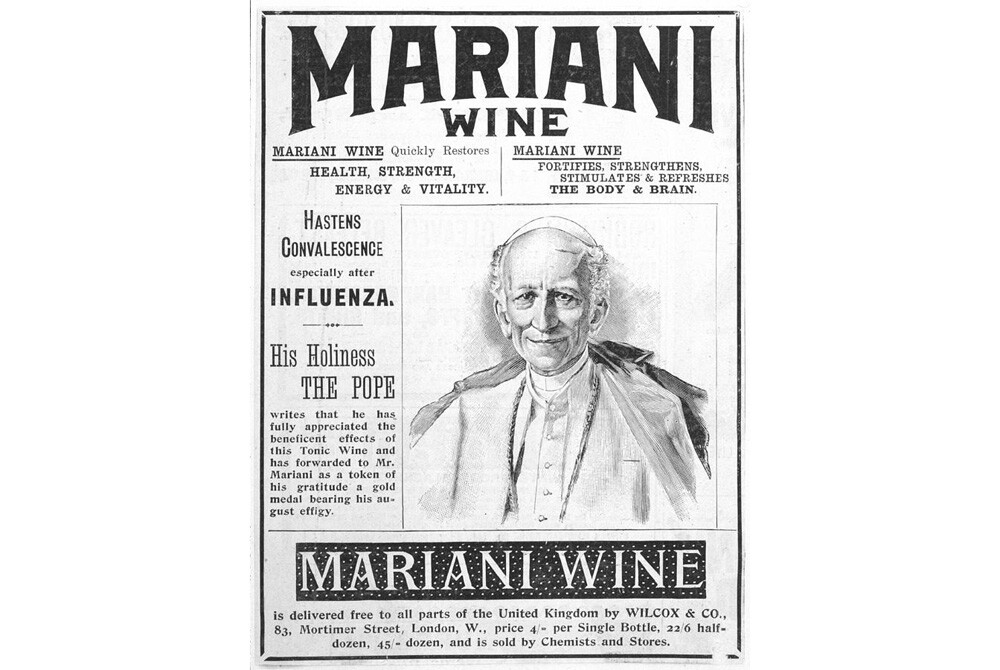
via Wiki Commons
Flash forward further to the modern world, and we see Pope Francis himself talking about how he wants to chew coca leaves. That’s pretty consistent support for coca leaf over the centuries.
Now of course, when it comes to pure cocaine, modern popes do usually say it’s not a great idea—but the reality is that when naughty priests get filmed snorting the stuff, they don’t get fired, they just get relocated. And when these two guys got caught using a bishop’s car to smuggle cocaine within Europe, the Church didn’t seem too concerned about it either.
So on the balance of the evidence here we’re going to say that overall cocaine gets the Pontiff’s Seal of Approval.

Is Cocaine Pope-Approved: Yes - especially when mixed with the purifying effects of wine.
Pontiff Pleasure Rating: 3 out of 4 Flasks of Vin Mariani
Popes On Tobacco
You might think popes would be opposed to tobacco, but you would be greatly mistaken. Turns out several popes were blessing their flock with fingers yellow from that acrid smoke.
During the 1500s, the Catholic church was busy murdering and assimilating indigenous people in the New World. Some of these newly baptized Catholics liked bringing their sacred tobacco into church, as incense and snuff. (Snuff is essentially tobacco ground into a powder for snorting purposes.) The Church tried to ban tobacco, but it was too ingrained in indigenous culture, and then quickly became way too popular in Europe to stop.

Snorting snuff and inhaling tobacco smoke became commonplace in Catholic churches, among clergy and parishioners alike. It was allowed at first, but then the tobacco smoke was drowning out the incense cones, and some people didn’t like that. The cigarette butt that broke Joe Camel’s back was when a particular priest took a too-big blast of snuff during Communion—then sneezed so hard he puked up his sacred wafer of Jesus flesh.
The pope at the time then banned tobacco from churches, but that just made it so all the cool kids were hanging out back puffing away instead of sitting in their seats for Mass. After a while, the pope gave up and said it was just the priests who couldn’t partake while in church. People were puffing in pews for centuries thereafter—by the 1700s, even the popes were smoking and snuffing it up. By the 1800s, the Church was deeply involved in growing and selling tobacco—they had established a monopoly on tobacco sales within the Papal States.
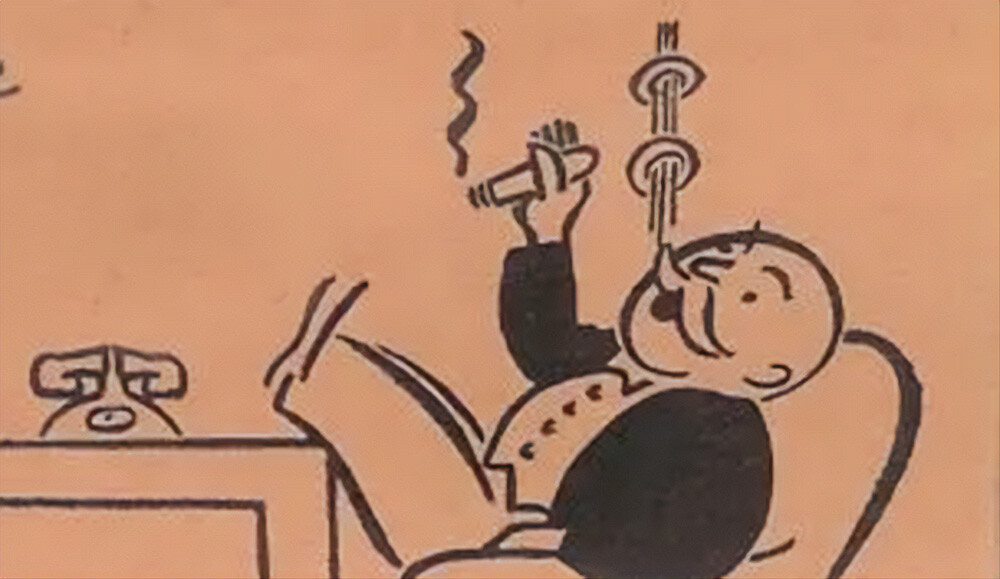
Parker Brothers
Just like with coca leaf, the Church’s motto when it comes to tobacco is apparently: Hic iocus est de mentula tua. Spero tibi placet.—“If you can’t beat them, join them and make a profit while you’re at it.”
During the late 1800s, Pope Pius IX was such a renowned tobacco-snorter that he had to change his white robes several times a day because they kept getting dirty with snuff dust. In 1871, he even put up his beloved holy golden snuff-box—“exquisitely carved with two symbolic lambs in the midst of flowers and foliage”—as the grand prize in a worldwide lottery to raise money for the church.
A few subsequent popes have been fans of cigars and cigarettes, and Pope Benedict XVI still smokes Marlboros—he’s the one who stepped aside for Pope Francis to take over in 2013. But decades of cigarette smoke hasn’t sent Benedict to an early sepulchre—he’s still lurking in the secret Vatican tunnels and turning 95 in April.

There’s even a tobacco-smoking saint named Joseph of Cupertino, known for being pious, dimwitted, and levitating during Mass. His tobacco use was officially determined to be a benefit to his spirituality, as it helped him to fast and pray longer. Holy smoke!
Is Tobacco Pope-Approved? Yes!
Pontiff Pleasure Rating: 6 out of 6 Cancer Sticks
Popes On Psychedelics
Indigenous medicine plants were always demonized and banned when colonial Catholics took over. During the Inquisition, using psychoactive herbs would be considered witchcraft. So psychedelics would seem like an obvious slam-dunk No on the pope approval index—but as the priest said to the choir boy, let’s explore this a bit further.
Tobacco, cocaine, coffee and peyote were all first encountered by Europeans within the same general time period. While there was initial resistance, all but peyote became accepted and were widely used by priests and popes by the 1800s. The psychedelic plants, however, never made it to the mainstream in Europe. They were too enlightening, too direct a challenge to the beliefs and authority of the Mother Church.
Peyote ceremonies allowed direct contact with the divine, a concept that makes popes nervous, since their whole gig is about being God’s middleman. In regards to the peyote experience, it’s been said “The White Man goes into church and talks about Jesus. The Indian goes into his tepee and talks with Jesus.” The intense and personal spiritual experience of peyote can be pretty hard to compete with when all you’ve got is wine that supposedly turns into blood if you imagine it hard enough.

Peyote was getting popular enough among Catholics that the Church banned all peyote use in 1620, decrying the increasing frequency of its use, and claiming that “the mental images, fantasies and hallucinations” peyote produced were from “the intervention of the Devil.”
There’s no evidence of any pope eating magic mushrooms or being slipped a tab of acid that I could find, but there are a few interesting examples of priests exploring the psychedelic realms. A Harvard study in the 1960s called The Good Friday Experiment had seminary scholars take psilocybin before the Easter service to see how it affected their “experience of the liturgy.” Turns out taking shrooms before church makes everything way more meaningful. 25 years later, every one of the psilocybin-takers in the study unanimously described the experience as “genuinely mystical” and one of the highpoints of their spiritual life.
Those were all Anglicans—which are almost Catholics, but they don’t obey the pope—so I suppose they’re not relevant to this analysis. There's also a Catholic priest in Mexico who advocates for psychedelic rituals and calls mushrooms “The Flesh of God.” He didn’t get kicked out or relocated (yet) so I guess that’s something.
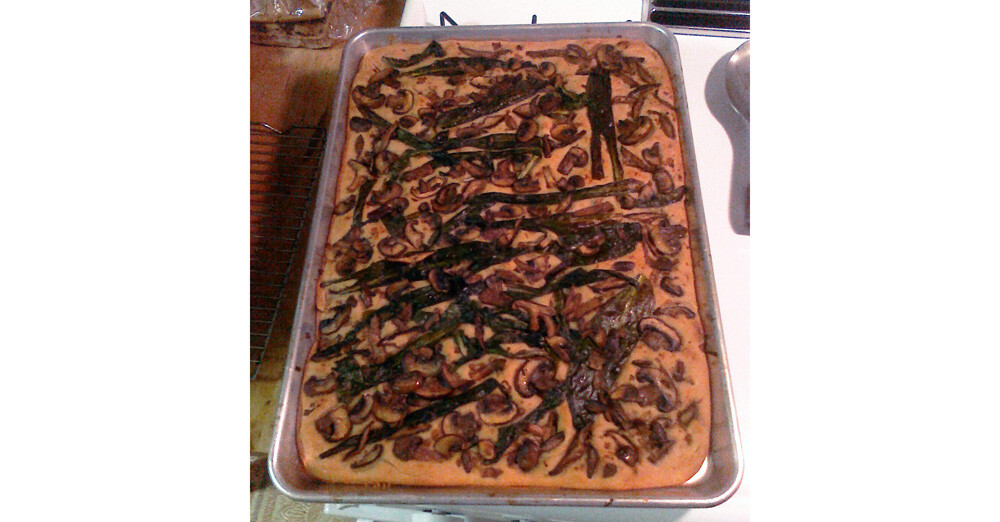
More recently, some Catholic priests did volunteer to take doses of psilocybin in 2017, along with some rabbis and a Buddhist, for a study on their effects. Their identities were kept secret and the study is ongoing, but initial results are showing that “generally people seem to be getting a deeper appreciation of their own religious heritage … and a greater appreciation for other world religions.”
However, even with all this, it’s still going to have to be a negatory on the pope-approval for psychedelics. If anyone can munch a mushroom and talk to God, the pope will be out of a job.
Are Psychedelics Pope-Approved? Nope!
Pontiff Pleasure Rating: 2 out of 10 Magic Mushrooms
Popes On Cannabis
Finally we get to the big one. Surprise! There’s a pope who endorsed and recommended cannabis. Pope John XXI, the only doctor pope, wrote a medical book called “A Treasury of Health” in 1277, which recommended cannabis for treatment for scabies, infection, and fever.

However, it’s pretty slim pickings for any pro-pot popes since then, with centuries of documented hostility between Catholics and cannabis. It’s not just the potent marijuana that the Church is opposed to, they don’t even like the cannabis hemp used for fiber and rope either!
Around 1600, a famed witch-hunting bishop named Friedrich Förner wrote an incredible propaganda tract called “Eight Ways the Sinner is Like Cannabis.” He compares every stage of harvesting and preparing cannabis fiber for rope to the fate of sinners and God’s planned punishments for them.
Here are a couple of excerpts:
Cannabis is softened in water that is as stagnant and murky as possible. Do not also the sinners of this world grow soft with the mud of carnal pleasures?
When the rope is being made, cannabis is added to cannabis and is joined together … so sin is added to sin until finally the dim-witted transgressor is cast headlong into the depth of hell!
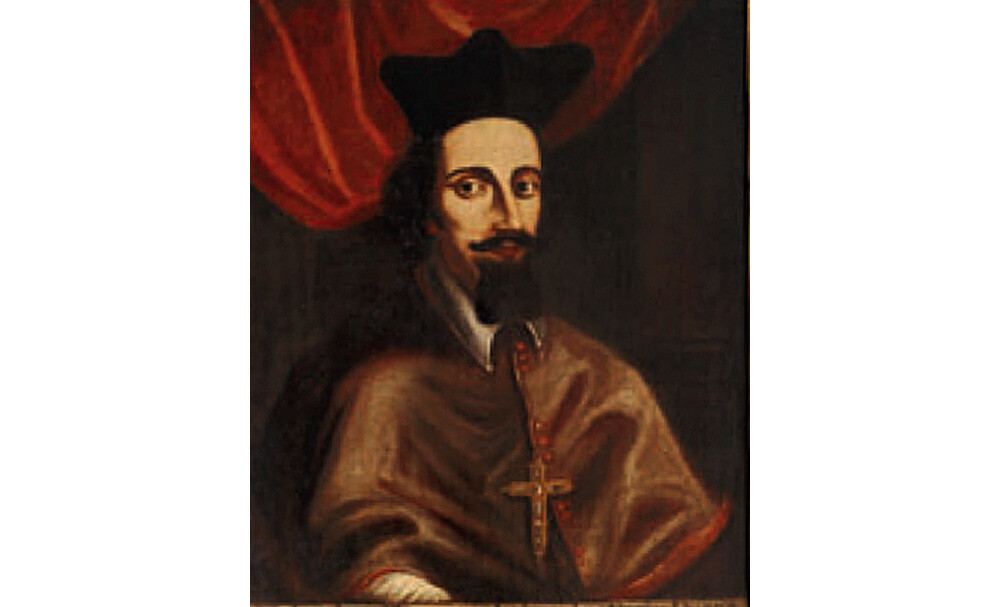
via Wiki Commons
A century later, priests in Quebec were telling the farmers in their flocks to stop growing cannabis hemp. This was because, by custom, priests received a 10% tithe from food crops, but with an industrial cash crop like hemp, the church didn’t get a cut. Wherever hemp production increased, parish revenues dropped—so they demonized cannabis and those who farmed it.
These days, the Church is outspoken against cannabis legalization, with bishops campaigning to keep prohibition in place and priests writing newspaper editorials saying that legalization of cannabis causes “a rise in the sum of human misery.”
Even Pope Francis—the cool pope liked by all the kids—is a bummer when it comes to weed, using his holy influence to fight against ending prohibition. And when he was a bishop on the Pontifical Council in 1997, it released a statement that legalizing any drug would be just like legalizing murder.
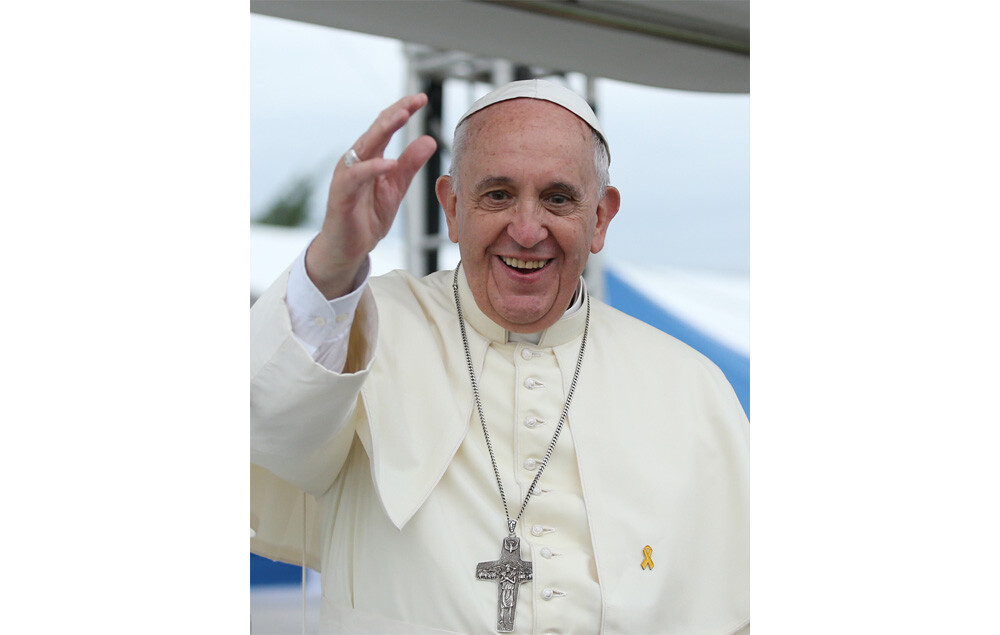
via Wiki Commons
How do Catholics justify their love of liquor while pushing pot prohibition? Easy. Wine isn’t a drug, it’s a beneficial “foodstuff”—while cannabis is simply a harmful vice.
So popes are generally not into weed, which is weird because Jesus probably used cannabis. The holy herb was definitely known in Israel during his time; archeological evidence shows that potent hashish was ceremonially burned in Jewish temples.
Regardless of whether he used it personally, Jesus didn’t seem like a big fan of prohibition in general, saying, “A man is not defiled by what enters his mouth, but by what comes out of it.” Yet despite being Jesus-approved and one pope promoting medicinal use, we’re going to have to say that overall the pope is not blessing your bong hits.
Is Cannabis Pope-Approved? No!
Pontiff Pleasure Rating: 1 out of 7 stinky roaches.
So what have we learned? If you’re preparing to party, and the Pope’s approval is important to you, just grab a pack of cancer sticks, some Peruvian marching powder and a bottle of Jesus Blood and you’re ready to go. If you get lucky, well, the pope recently explained that sex outside marriage is not really a serious sin, so just make sure to avoid condoms and you’ll stay on the Pontiff’s good side.
But if you like to hit the bong, nibble a mushroom, and have safe sex with your partner, well, go for it I guess, but just remember that you’re pissing off the Pontifex.
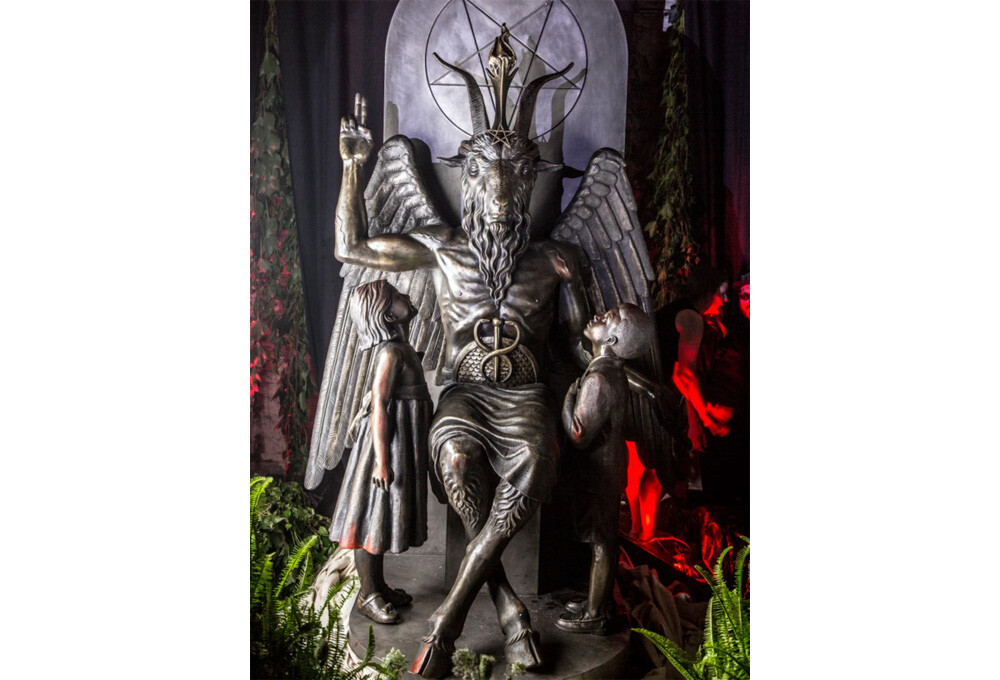
Dana Larsen runs the world’s busiest drug testing center, operates a medicinal mushroom dispensary and writes books including Hairy Pothead and the Marijuana Stone.
Top image: James Miller
